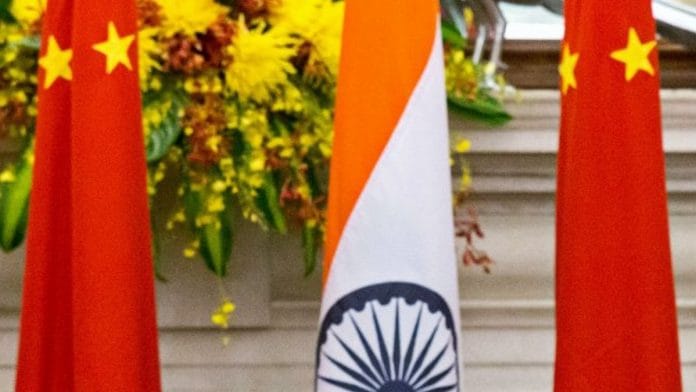New Delhi: The military stand-off between India and China at the Line of Actual Control (LAC) in Ladakh has brought the China Study Group (CSG) into focus.
The CSG is the central and sole advisor to the government on policies related to China, and is currently playing a key role as the two countries try and chalk out a comprehensive disengagement process.
On Wednesday, the CSG held a review meeting on the 15-hour-long fourth round of talks between the Indian and Chinese corps commanders at Chushul the previous day.
Army chief General M.M. Naravane apprised the CSG of the outcomes of the latest round of corps commander-level talks, one of which was both sides agreeing to further discuss ‘complete disengagement’ in Ladakh. Lt Gen. Harinder Singh, commander of the 14 Corps, who has been representing India in all talks at this level since 6 June, was also present at the CSG meeting.
On 9 July, the CSG had reportedly met to review the details of the disengagement of Chinese troops from Galwan, Gogra post, and Hot Springs areas along the LAC. The meeting took place soon after the 6 July agreement by the Special Representatives of the two countries, National Security Advisor Ajit Doval and Chinese Foreign Minister Wang Yi.
Also read: India’s credibility will be hit if our posture on China doesn’t match new realities at LAC
History and composition of CSG
The CSG is a secretary-level grouping which includes the foreign secretary, home secretary, defence secretary, and the vice-chiefs of the three services, along with the chiefs of the Intelligence Bureau and R&AW.
The group meets on its own, but the National Security Advisor convenes the meeting from time to time. At such meetings, the service chiefs also attend, and based on the issue at hand, the external affairs minister may also attend.
Sources said there can be special invitees too, like 14 Corps commander Lt Gen. Harinder Singh in Wednesday’s meeting.
The CSG was set up in November 1975 on the instructions of then-PM Indira Gandhi, comprising the secretaries of external affairs, defence, and home. Its first head was diplomat K.R. Narayanan, who would go on to become President of India.
The primary task of the CSG was to monitor the India-China border, assess its management, and help in preparations for negotiations with China on the border question.
After Narayanan was appointed India’s ambassador to China in 1976, the foreign secretary was designated chairman of the CSG, with the vice-chief of Army staff as a member.
The CSG was subsequently upgraded post 2003, after the establishment of the Special Representatives meetings to resolve the border question with China. It was also put under the charge of Brajesh Mishra, the NSA at the time, and many top civil servants were brought into it.
In the next few years, the CSG was further expanded to include representatives of intelligence agencies.
Keeping a close watch
Lt Gen. S.L. Narasimhan (retd), member of the National Security Advisory Board (NSAB), told ThePrint that the CSG has got all the people required to take decisions on China affairs.
“Whether it is a larger decision on the roads and other infrastructure to be developed at the border or monitoring of the present situation, CSG has been keeping a close watch on all developments related to China,” he said.
Narasimhan explained that the patrol points along the LAC were identified by the CSG, keeping in mind all important aspects.
“The CSG had also identified 73 strategically important roads along the border, and is part of the planning of the larger infrastructure development in the region,” he said.
Srikanth Kondapalli, professor of Chinese studies at the Jawaharlal Nehru University, said the CSG is a classified organisation and meets depending on the situation at hand.
“It also includes the policies we need to adopt vis-à-vis China, aside from the military component,” he said.
Kondapalli added that even the decision to ban 59 Chinese apps could have been made with the CSG’s nod.
In contrast, China has “leading small groups” to advise it on policies towards many countries, Kondapalli explained.
In an interview to ThePrint, NSAB chairman P.S. Raghavan had said close observation of the LAC is ingrained in government procedure, and is done perhaps even more stringently than the Line of Control with Pakistan. The CSG is an integral part of that structure.
Also read: Modi has chosen discretion on China because India’s real failure is in defence capabilities






